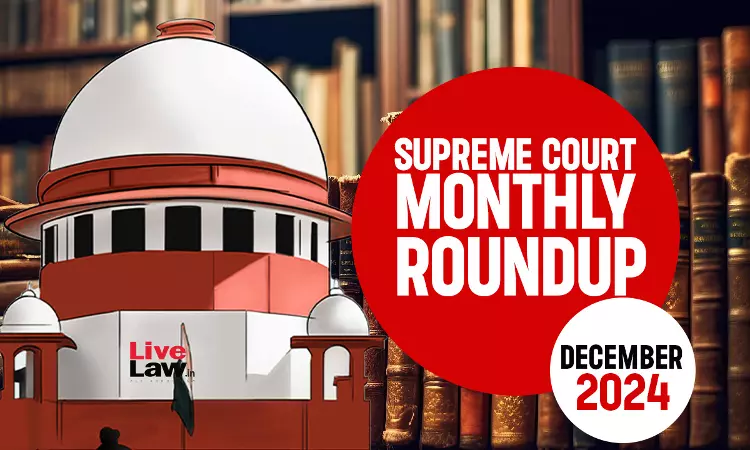Next Story
4 Jan 2025 10:25 AM IST
IndexCitationsAshok v. State of Uttar Pradesh, Criminal Appeal No. 771 of 2024 2024 LiveLaw (SC) 941Union of India & Ors. v. Saroj Devi 2024 LiveLaw (SC) 942Satish Kumar Ravi v. State of Jharkhand & Anr. 2024 LiveLaw(SC) 943Oachira Parabrahma Temple & Anr. v. G. Vijayanathakurup and Ors., Civil Appeal Nos. 13708 - 13709 of 2024 2024 LiveLaw (SC) 944Irfan Khan v. State (NCT of...

